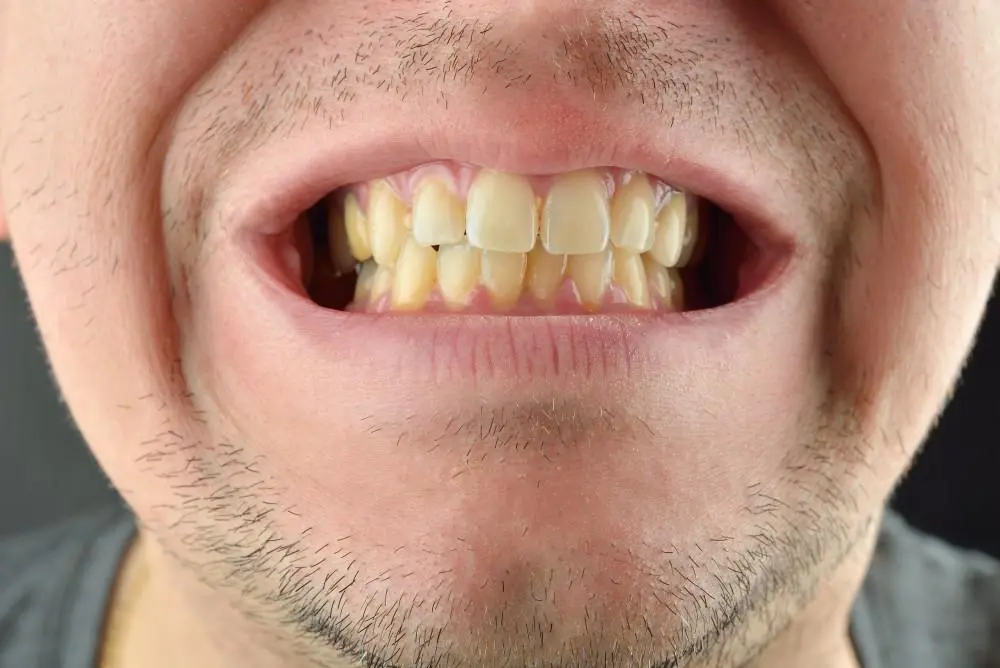Are Yellow Teeth a Cosmetic or Medical Issue?

Most Americans see bright, white teeth as something to be valued, and a beautiful set of pearly whites enhances your overall appearance for obvious aesthetic reasons. For many people, teeth whitening is part of their overall oral hygiene and dental routine.
If you have yellow teeth, or you did before you whitened them, you may be wondering: Are yellow teeth simply a cosmetic issue, or are they a medical concern as well? The short answer to that is: both. It depends a great deal on your diet, lifestyle, and health.
In this post, our skilled dental professionals at Dental Studios, in Summit and Westfield, New Jersey, explain the different causes of yellow teeth. Take a few minutes to learn when yellow teeth are most likely a cosmetic concern and when you may need medical attention.
What’s in your glass and on your plate?
If you’re a red wine drinker, a coffee connoisseur, or a cola shark, it’s only a matter of time before your teeth become a shade or two yellower. That’s because dark-colored beverages — the same ones that stain your clothes — also stain tooth enamel.
Dark-colored foods are also a culprit of yellow teeth, so if you regularly enjoy dark chocolate, balsamic vinegar, and even cherries, you see a change in the brightness of your smile over time. And there’s more: Acidic foods and drinks may help promote tooth staining.
This is because the acid in certain foods and drinks erode tooth enamel and make it easier for dark pigments to settle in — think tea, red wine, pickles, and tomatoes. If you eat candy or drink fruit juices and carbonated beverages, you’re helping your teeth turn yellow over time.
Do you smoke or chew tobacco?
Tobacco is an obvious cause of stained, discolored teeth. Combine the effect of tobacco with the types of food you eat, and it’s a double-whammy for your enamel. The good news is that sometimes you can reverse the effects of tobacco on your teeth by brushing and flossing regularly, getting professional teeth whitening treatments, and, of course, quitting smoking.
Do you practice good oral hygiene techniques?
This is when your yellow teeth could become a medical problem. If you don’t brush your teeth at least twice a day, get regular dental checkups and cleanings, and floss daily, not only do your teeth appear dingy-looking, but decay occurs, too.
Not having a good oral hygiene routine often leads to tooth decay, cavities, gingivitis, and a host of dental issues. Left untreated, your yellowing, stained teeth can become an overall health problem that affects your body in ways you may have never thought possible.
What’s your medical history?
The above types of tooth discoloration are considered, for the most part, extrinsic stains. That means the yellowing is on the surface of your teeth and is often easily removed with teeth whitening treatments. The other type of tooth yellowing is intrinsic, and it’s embedded inside your tooth.
Intrinsic staining can occur as a result of a genetic problem or taking certain types of medication. Intrinsic tooth stains often appear grayish rather than yellowish. A calcium deficiency in your diet can also cause intrinsic tooth discoloration because you need plenty of calcium for healthy, white teeth.
If you’ve undergone certain medical treatments such as chemotherapy, you may also develop intrinsic tooth stains.
Cosmetic or medical, don’t ignore yellow teeth
Whether you’re concerned about the appearance of your teeth for aesthetic reasons, medical concerns, or both, it’s best not to ignore yellow teeth. We offer a variety of dental procedures at both of our Dental Studios locations in New Jersey, so you can return your teeth to optimal health and whiteness from the inside out.
If after our personalized assessment of your teeth and gums we determine that whitening treatment isn’t an option, we are experts at creating custom veneers for a dazzling smile.
Call our friendly team or make an appointment online today to achieve brighter teeth and a healthy smile.


